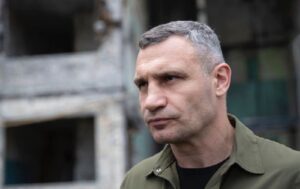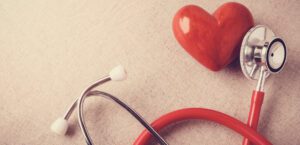
Fifty-two new heating points equipped with generators and other necessary equipment have opened in the capital’s Goloseevsky, Dneprovsky, Obolonsky and Svyatoshinsky districts, Kiev Mayor Vitali Klitschko said in a telegraph feed on Friday.
“We opened 52 new points where people can get warm, recharge their gadgets, get up-to-date information in case of a prolonged lack of electricity and heat in their homes, in Goloseevsky, Dneprovsky, Obolonsky and Svyatoshinsky districts,” he wrote in Telegram.
According to the mayor of the capital, now in Kiev “there are 532 heating points, which the city has prepared (50 of them – equipped tents SES). The business is also involved: more than 100 additional points are provided by entrepreneurs.
As Klitschko noted, the situation with electricity remains difficult. “Recently, we received humanitarian aid from the city of Riga – 49 generators and heat guns, which, in particular, were used to equip additional heating points. Also we received 9 powerful generators from the Danish twin city of Odense. We will install them in the boiler rooms of the capital”, – the mayor reminded.

Kyiv is supplied with electricity by less than half, while a significant deficit remains in the energy system as a whole due to Russian terrorist shelling, NEC Ukrenergo said.
“As of this morning, there remains a significant capacity deficit in the energy system. Less than half of the consumption needs in the capital are being met, the priority is to supply power to critical infrastructure,” Ukrenergo said in its Telegram feed on Tuesday.
At the same time, the company expects that on Tuesday it will be possible to turn on certain equipment that will somewhat improve the level of supply reliability, reduce the power deficit in the capital’s power grid and power more consumers.
They drew attention to the fact that UAV bombardment of main grid facilities in the central region, which occurred on the night of December 19, as well as shelling in eastern Ukraine led to further damage to energy infrastructure and worsened the situation with power supply, in particular, in the central region and Kiev.
“Repair crews of Ukrenergo, generation and distribution system operators are making every effort to improve power supply,” the NEC noted.
As reported, the general director of the power supply company YASNO Sergey Kovalenko said Monday evening that the needs of the population in the capital can be met only by 20%, as a result, according to him, 10 hours without light in the capital – the reality at the moment.

As a result of damage to the energy infrastructure, there are water supply interruptions in the capital, Kiev mayor Vitaliy Klitschko said.
“There are water supply interruptions in all parts of the capital due to damage to the energy infrastructure. Specialists are working to stabilize the system. Just in case, prepare a supply of drinking and technical water,” Klitschko wrote in his Telegram channel on Friday.

Ukrainian private clinics in blackout conditions find opportunities to continue their work and provide medical services to citizens, results of a survey conducted by Interfax-Ukraine.
For example, the private ophthalmology center of family ophthalmology Zorkoclinic noted that since the beginning of full-scale hostilities the clinic has continued to work, providing people with ophthalmic care wherever possible.
“Blackouts really hurt us because it’s impossible to work effectively in a blackout. Most of the equipment has to be plugged in. Most, but not all, so we have completely revised the logistics of our customers and agreed on a certain procedure”, – said in Zorkoclinic.
It was explained that during blackouts the clinic treats patients who can be treated without electricity, in particular those with inflammatory eye diseases, eye injuries, as well as those who need to monitor the intraocular pressure and fundus examinations, because the equipment required for this purpose runs off-line on batteries. In addition, the clinic is developing an online consultation service.
At the same time, Zorkoclinic reported that they plan to connect their own generator at the end of November, as there is not enough battery power for full operation.
The main problem faced by the clinic’s physicians during the blackout was the lack of resources for the urgent purchase of everything necessary to establish an autonomous system of work, coordinating the connection of the generator to the common system and the lack of communication, as well as the provision of heating and water.
“The clinic rooms are electrically heated, so it is currently quite chilly in the rooms. We are considering installing large thermoses so that warm water is available all the time for both staff and clients. We buy water for drinking, as always, but the technical water should be kept at the ready”, – they explained to the agency.
They also noted problems with communication, to solve which helped the Internet provider, whose services are used by the clinic, providing a continuous connection to the Internet.
“While we understood a clear schedule of outages, we carefully planned the appointments with the schedule in mind. Now we very much agree with clients that we will call them as soon as the lights come on. This is very disciplined everyone, and clients are sympathetic to this, “- stressed in Zorkoclinic.
In turn, the Medical Group of Companies (MGC) Adonis said that, in particular, their clinic in Sofievskaya Borschagivka in Kiev is working in normal mode and receives patients according to the schedule, and a maternity hospital takes women in labor around the clock. At the same time, planned and emergency hospitalization and urgent care continue.
Adonis noted that the clinic has an autonomous power supply system, so there is light in each unit 24/7, which allows patients to continue inpatient care even during a power outage.
“At first, because of the blackout, we had to deal with a number of organizational issues urgently, such as delivering technical and potable water and finding fuel for the generators. But now the branch has a large inventory and is ready for any calls of the present. The clinic is stocked with everything we need. Therefore, our and the patients are in comfortable conditions, have unlimited access to drinking water, have the ability to charge their gadgets, “- commented in the clinic of the problems faced by doctors because of blackouts.
At the same time MGC Adonis branch on Podol also works 24/7, is provided with water, and a generator works in case of power outage. All kinds of services are provided there, such as consultations, diagnostics, laboratory tests, surgical interventions, in-patient department and ambulance service.
Adonis on Osokorki also works in the normal mode and accepts patients according to the schedule. The cryobank and the embryological laboratory in the IVF department of the clinic are additionally provided with stable backup power supply, but currently the ultrasound diagnostics does not work during power outages.
MGK Adonis noted that the clinics are provided with generators and the needs of the clinics are covered by 100%. In addition, there are separate power sources for both the outpatient and surgical units and the embryology laboratory. Surgical and inpatient medical care at Adonis is provided in the branches, which operate 24/7.
That said, Adonis pointed out that when dealing with power issues, they “found themselves in a strange situation where the local housing community was blocking the installation of additional power generators.”
“We found a compromise solution and are now in the process of setting up a generator that will supply our patients’ needs, including surgical patients, 100 percent. The clinic is equipped with everything we need. Our patients are comfortable, have unlimited access to drinking water, and can charge their gadgets. Heat is supplied centrally,” the company said.
In turn, the medical network “Dobrobut” reported that as of November 29, most of its 16 medical centers are equipped with generators, and some clinics are still working on installation of battery power.
Both of Dobrobut’s hospitals (on Semya Idzikovskikh St. and Lubomir Guzar St. in Kiev) have autonomous power sources, and their patients continue to receive all necessary medical care and assistance.
“We continue to provide all types of medical care. In particular, you can receive any type of medical care round the clock in our large hospital at 3 Idzikovskikh St., where even in the absence of power supply the hospital, admission department, intensive care unit, surgical operating rooms continue to work and outpatient care is provided. Instrumental diagnostic equipment, including MRI, CT, ultrasound, as well as laboratory equipment, i.e. it is possible to make tests,” – the company said.
At the same time, in other clinics of the network, even during the blackout period, outpatient reception continues, laboratory tests can be done, and in some units it is still possible to make ultrasound and other available instrumental diagnostic services.
At the same time, the clinic stressed that in unpredictable situations, when, for example, the generator does not start, physicians warn patients about the situation and other possibilities of the network clinics.
“Before the visit, you can call the call center “Dobrobut”, and in case there is no connection, but there is access to the Internet, we have created electronic boxes, which can be used to make an appointment or ask a question. If there is no connection at all, you can simply come to any of the Dobrobut medical centers.
That said, even during alarm and curfew times, Dobrobut continues to have emergency care available.
“All clinics have an ample supply of drinking water, Dobrobut coffee shops continue to operate, where you can buy hot tea and coffee, as well as snacks with warm food,” the nurse specified.
The company also reported on its plans to soon open a large hospital on the left bank of the Dnieper River in Kiev, where an in-patient department will operate and a powerful generator will be installed to cover all medical needs of the medical center. However, the company noted that under conditions of constant stabilization and emergency shutdowns, it is quite difficult to plan and carry out technical work on the installation of generators. Accordingly, installation work takes longer.
The Leleka Medical Center, when asked by Interfax-Ukraine, said that their center continues to operate from the generator, to which all critical units are connected, so there is water, heat and light.
“We are provided with everything: both heat and water due to engineering system solutions, which was thought out back during construction in 2015. We provide all medical services as usual. There are generators that allow us to continue working, conducting consultations, taking tests, diagnostics, surgical interventions, deliveries, resuscitation assistance. Medical equipment is working and food is being prepared,” the clinic reported.
The main problem associated with the blackout is the high cost of fuel for the generator. “It’s more expensive than electricity,” the medical center explained,
“There are cell phone and Internet outages during blackouts that we can’t affect. But it doesn’t affect patient safety, it just adds some service inconvenience,” the clinic clarified.
Blackouts, DOBROBUT, KIEV, Private clinics, Zorkoclinic, АДОНИС, Лелека

Electricity, communications, water and heat supply have been almost completely restored in the Ukrainian capital as of Sunday morning, the press service of the Kiev city military administration said.
“Repair work on the power grid system is in its final stages. As of this morning, most residents of the city are not only with light, but also without emergency and even stabilization shutdowns,” the report said.
It specifies that all this is due to “restored, stable power supply and low power consumption by subscribers.”
“On the scale of the capital water supply, heat supply, communications – everything is working in a normal mode. Only local emergency situations are likely,” the administration concluded.